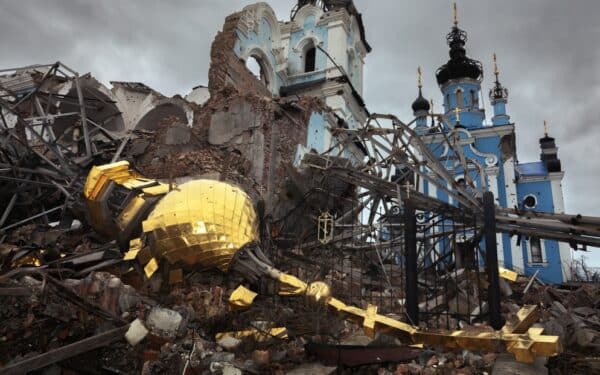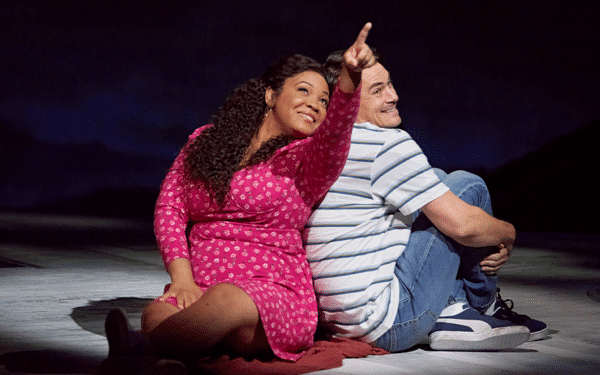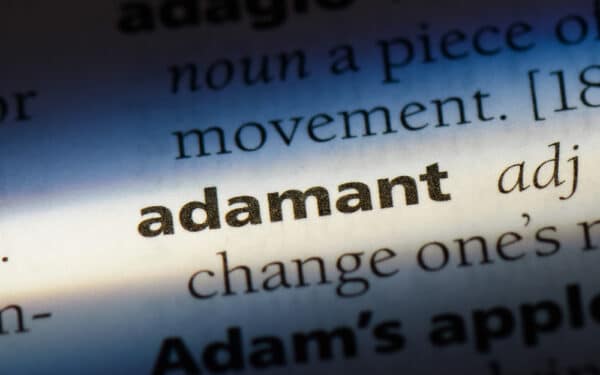The chequered history of Rodney Ackland’s Absolute Hell has granted it a level of notoriety which does not stand up to scrutiny when viewed on the modern stage. When the play first opened in 1952, it was dubbed a “libel on the British people”, and audiences were scandalised by many of the characters’ coarseness, depravity – and homosexuality.
Taking place in the weeks between VE day and the landslide Labour victory in 1945, Absolute Hell’s action is set in a Soho members club, La Vie En Rose, run by Christine Foskett (Kate Fleetwood), a desperately lonely figure, who like her patrons, has been seeking solace in drink during a time of bewildering instability. Her mantra – “It is not permitted in the club to be disgusting” – falls on deaf ears as GIs flirt brazenly, and camp film director Maurice Hussey (Jonathan Slinger) throws out grotesque insults with abandon. There is no plot as such – we are simply treated to a glimpse (with a three-hour running timing, perhaps more than a glimpse) of the brash frivolity of Soho’s denizens, desperate to evade social responsibility.
The closest Ackland comes to fleshing out a central character is with the beleaguered alcoholic novelist Hugh Marriner (the terrific Charles Edwards), desperate to scrounge £200 off whomever can afford it. He is a haplessly gullible mummy’s boy, who, like the majority of the characters, is addicted as much to the reassuring company he finds at the members club as he is to the liquor it serves.
After years of obscurity Absolute Hell was given a new lease of life in the form of a BBC adaptation starring Judi Dench as Christine, and a subsequent National Theatre revival in 1995, following extensive reworking of the script by Ackland himself (including the addition of pompous literary critics, perhaps in retaliation to those critics who had pooh-poohed his first version).
But the shock factor is so diluted these days, and the supposedly outrageous characters so stuffy, that the director Joe Hill-Gibbins has had his work cut out to achieve any kind of memorable dramatic impact. His technique seems to have been to heave as many cast members on stage as possible, inviting them to caper around the elaborately constructed set (designed by Lizzie Clachan) as frequently as the script allows. In its visual extravagance, this production is an accomplishment. The leering, jostling characters grimace and topple over each other in scenes reminiscent of the Weimar-era works of Georg Grosz or Otto Dix.
Just as these painters celebrated the “New Objectivity” aesthetic of sordid realism after WW1, so Ackland brings a stark objectivity to a period in British history which has become defined by the historical trope of the ‘Blitz Spirit’. The club members are trapped in a quasi-Chekhovian scenario, marooned from civilising influences, anxious and self-conscious, but determinately avoiding the thought of post-war life – with the Blitz no longer offering an acceptable excuse for lurking in the shadows and getting drunk.
La Vie En Rose is a pot-bouille of artists and the petit-bourgeoisie, whose uproarious behaviour exposes a fragile sub-world of metropolitans adept at hiding from their own fears. None of the characters seem particularly interested in the upcoming general election (“They’re going to nationalise women!”, cries club member Julia in mock horror), but the constant presence of a typist working away in a Labour office “across the road” is a reminder of the imminence of momentous political change. The victorious fanfare announcing Labour’s victory at the play’s denouement is set against the physical disintegration of Christine’s beloved club in horribly bleak fashion.
Sartre’s oft-quoted phrase “Hell is other people” (Huis Clos, 1943) pithily summarises the natural difficulties of co-existence. On one level, Ackland’s play is a survey of the destructive tensions between characters who are stagnating in self-deception, receiving constant affirmation of the acceptability of their own behaviour by evaluating themselves against those behaving worse.
On the other hand, the play is permeated with allusions to the sheer terror of being left alone to find one’s individual place in the world, without the comfort of false camaraderie. The individual “Other” is epitomized in the figure of Fifi, a street worker who prowls across the stage in front of the club intermittently – in the eyes of the club’s members she is a pitiable figure, unwelcome in their convivial crowd. To them, her life must seem absolute hell.
But if hell really is other people, Fifi, who works alone, holding herself proudly and resolutely as she stalks the pavements, seems to have escaped the worst of it. Reliant on her own wiles, she is more self-controlled and ostensibly more content than the unruly lot of La Vie En Rose.
This play may not be deemed a dramatic masterpiece, nor does it pack the punch it once did, but there is much to unpick, and some brave performances in this revival.
Absolute Hell runs at the National Theatre until June 16



